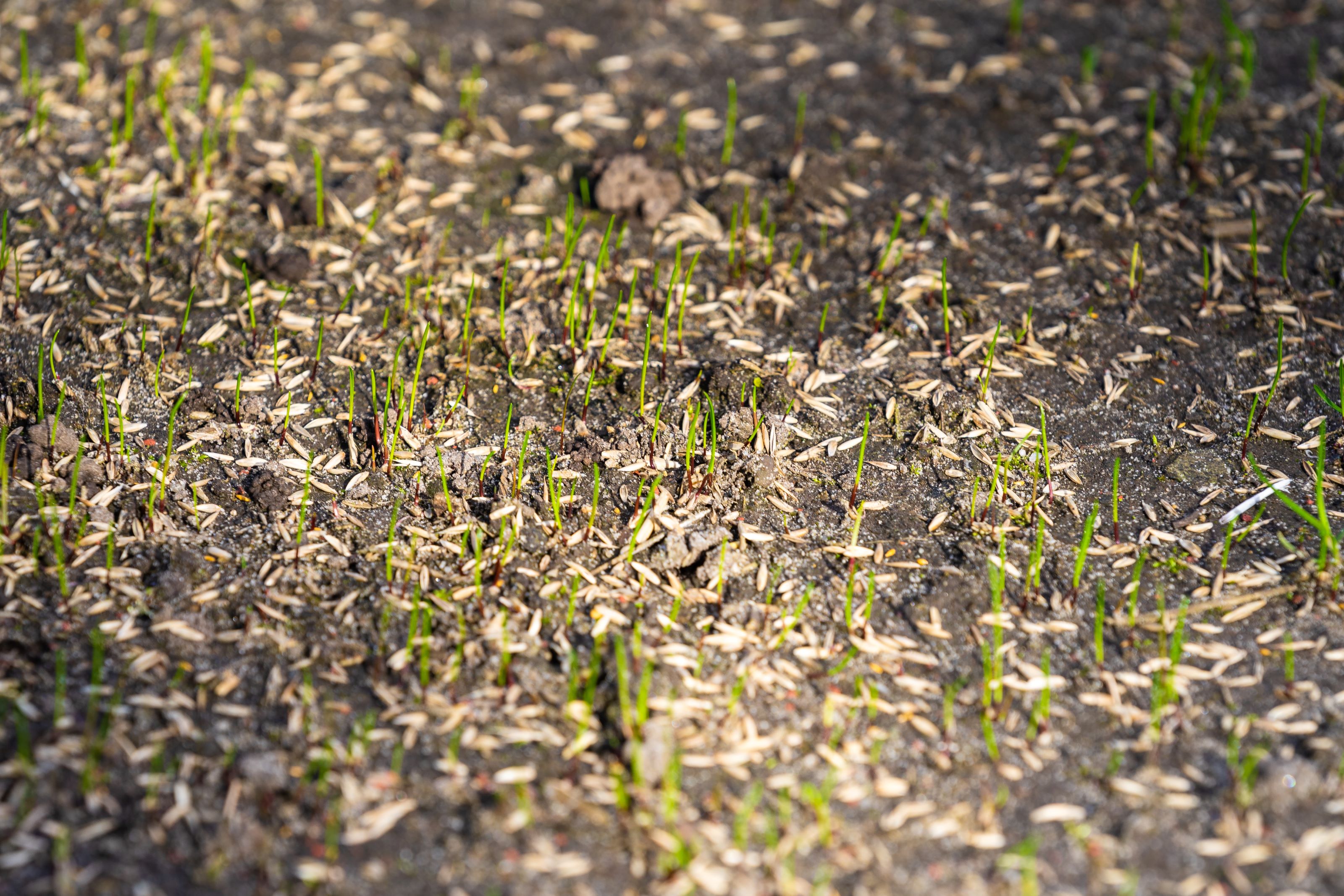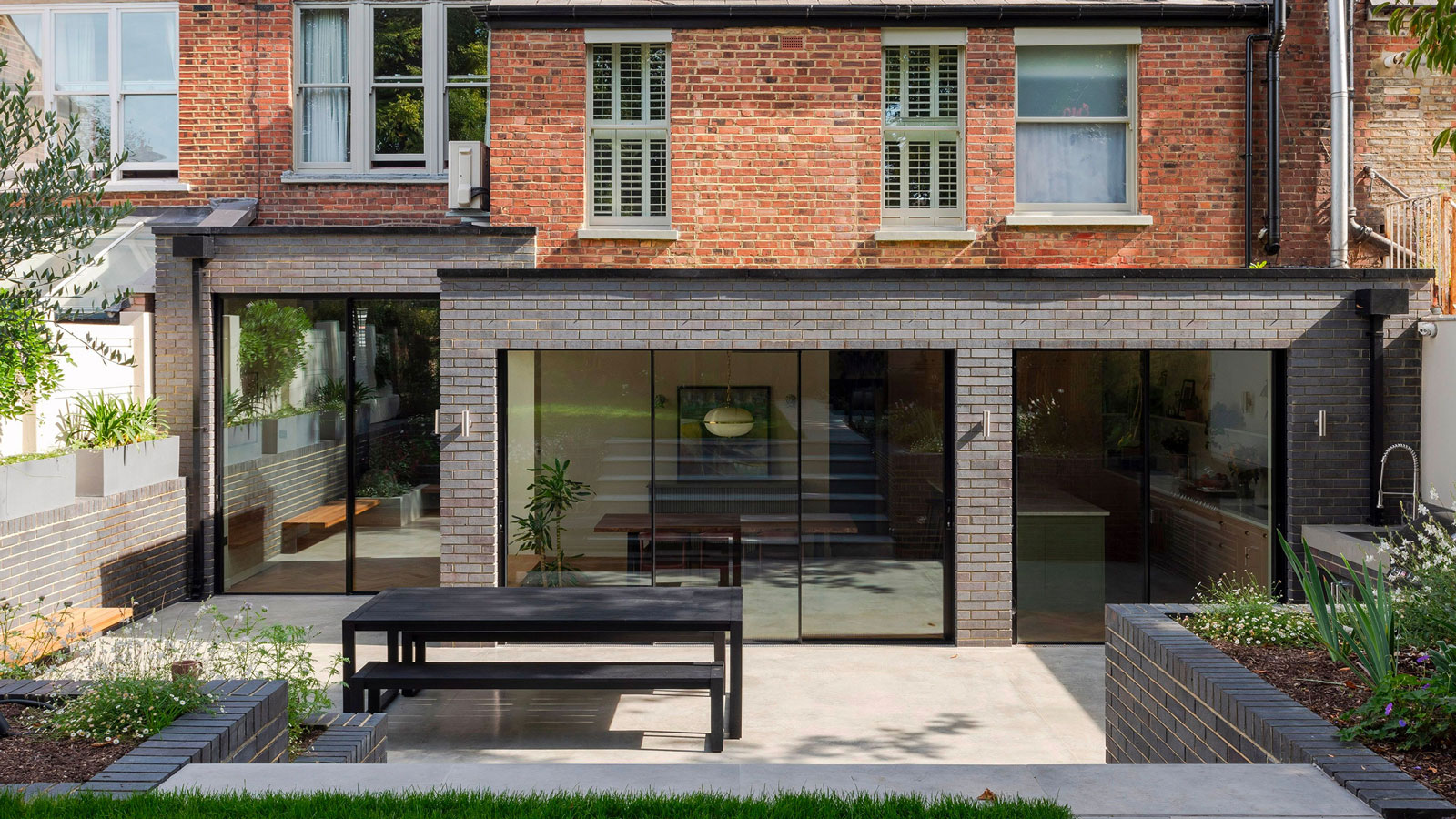
Bring your dream home to life with expert advice, how to guides and design inspiration. Sign up for our newsletter and get two free tickets to a Homebuilding & Renovating Show near you.
You are now subscribed
Your newsletter sign-up was successful
If your lawn is patchy and sparse after the rigours of winter, you may be wondering how long do grass seeds take to grow?
Your garden design plans may have taken a back seat thanks to the cold and wet weather, but now sunny days on the lawn are on the horizon, it’s time to cover up that bare earth.
When starting from scratch, it is cheaper to sow a new lawn from seed than to buy turf, and the process is very easy.
How long do grass seeds take to grow?
According to the Royal Horticultural Society, seeds germinate best in early autumn and mid-spring. At these times, the soil is warm, there’s plenty of moisture and the weather is neither too cold nor too hot. Germination should take from seven to ten days in these optimal conditions.
Early autumn is the better option, as the seedlings can get established before the first hard frosts, and then will root in well through the winter. The grass may not root in as quickly in spring, as it will instead put its energy into flowering. Homebuilding & Renovating has an in-depth guide on how to sow grass seed which can help you get the best results.
David Hedges-Gower, the chairman of the Lawn Association, says different grass seeds grow at varying speeds. For example, a rye plant grows quickest of all but in the long term will also mean yearly over-seeding as the plant doesn’t reproduce from itself. It is also fairly inexpensive and can be picked up for £39.99 for 5kg on Amazon.
Fescue seed will also germinate reasonably quickly, but bent seed requires slightly warmer conditions. You can find this on Amazon for around £145 for 20kg.
What can affect germination of grass seed?
David says there are three main species of seed used in lawns – rye, fescue, and bent – and they can compete with each other.
Bring your dream home to life with expert advice, how to guides and design inspiration. Sign up for our newsletter and get two free tickets to a Homebuilding & Renovating Show near you.
Rye seed is the largest and quickest but is not a great long-term option because it doesn’t reproduce. Fescue is slightly smaller, while bent seed is as small as a grain of sand. So, rye will germinate quickly and because it only grows vertically, it can have a drastic effect on how much light, air, food, and water gets to the other ‘native’ varieties.
He added: “A seed ‘pops’ by taking in water to its ‘pod’ and the sun, swelling it to ‘pop’. So, when one germinates quickly, it takes away the other seeds' ability to germinate.”
Other considerations are depth of seed, application rate, and moisture.
Guy Jenkins, an expert at Johnsons Lawn Seed, says to make sure the seeds are not planted too deep or too shallow. The seeds will take a longer time to germinate if they are buried too deep. The seeds will be at risk of drying out or being eaten by birds if they are planted too shallow.
Can you make grass seed grow faster?
The two most important things for seed growth are water and temperature. Goodgrow.co.uk recommends digging the soil and breaking up any lumps for healthier and faster-growing grass. The company also recommends you water the lawn before you even put down any seed.
David says: “Most people stick a sprinkler on and leave it, meaning 99% of the water is wasted. The seed, which should be placed in the top 2-5mm, only needs to be moist, not wet.
“And if buried closer to the surface – remember all plants self-seed with no top dressing over it – they can warm up quicker as well.”
Certain seeds, such as Johnsons’ Quick Lawn with Accelerator, feature dwarf perennial ryegrass and creeping red fescue, as well as a formulated blend of biostimulants in the seed coating – including seaweed extract, humic acids, amino acids, micronutrients, and root developers.
Guys says the mix "guarantees rapid lawn establishment while requiring only a third of the water typically used on lawns".
Sam is based in Coventry and has been a news reporter for nearly 20 years. His work has featured in the Mirror, The Sun, MailOnline, the Independent, and news outlets throughout the world. As a copywriter, he has written for clients as diverse as Saint-Gobain, Michelin, Halfords Autocentre, Great British Heating, and Irwin Industrial Tools. During the pandemic, he converted a van into a mini-camper and is currently planning to convert his shed into an office and Star Wars shrine.

